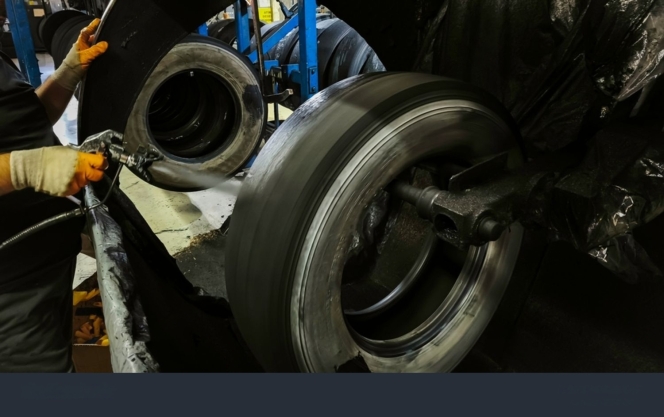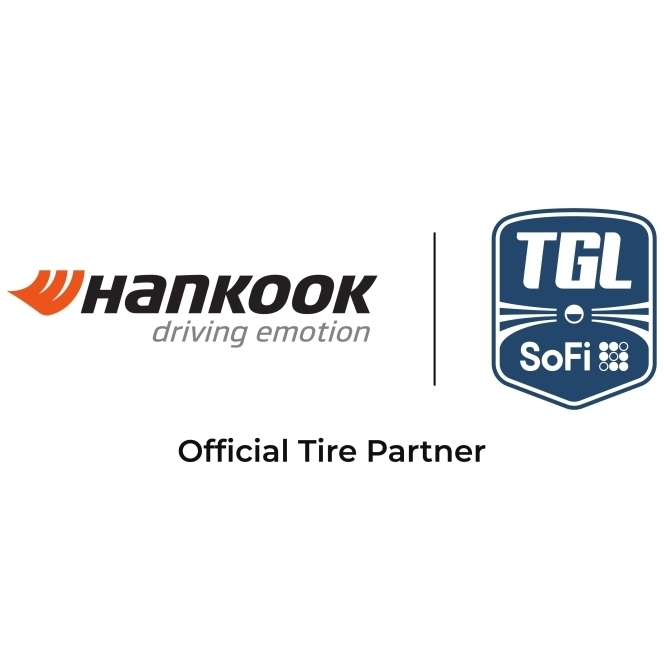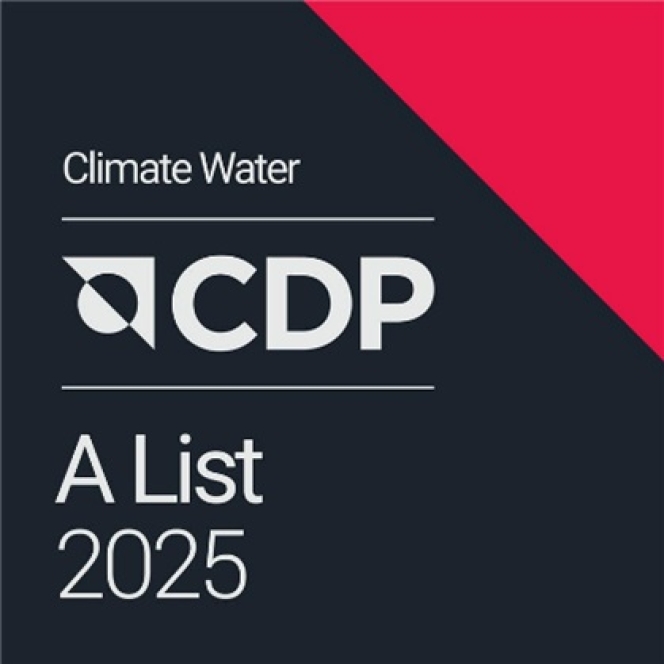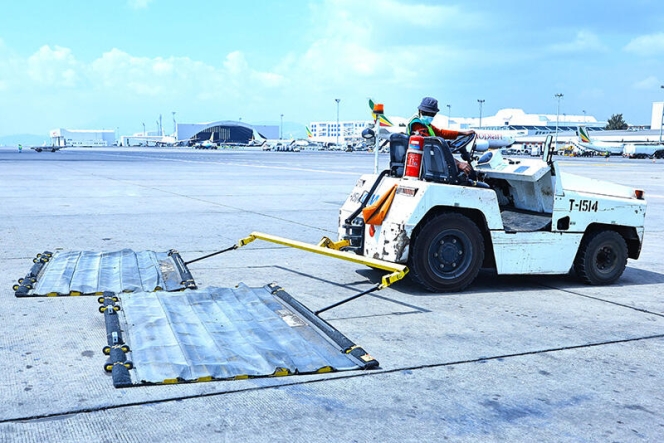Challenge Of Change And Business Strategy: Thinking Wide
- By PP Perera
- October 13, 2021

Change and impermanency is the common denominator of all phenomena and processes in nature, which include human activities as well. Heraclitus, the 5th Century BC Greek philosopher, has said that no man can step into the same river twice. This statement from Heraclitus means that the world constantly changes and that no two situations are exactly the same. Just as water flows in a river, one cannot touch the exact same water twice when one steps into a river. This view has been affirmed by Lord Buddha around the same period.
In fact, the challenge of change can be considered as the key driver in all the human endeavours across history and the main motivating factor of business strategies that have evolved through the four industrial revolutions spanning form the mid-18th century to the present day of mass digitalisation. The four principles of change management at any level – be it personal, family, workplace, company or a country – are:
- Understand the change
- Plan the change
- Implement the change
- Communicate the change
Some of the significant contributors to the management of change which resulted in the emergence of new approaches and working models that became popular during the past 50 years can be enumerated as:
- Lewin’s Change Management Model
- McKinsey 7S Model.
- Kotler’s Change Management Theory
- Nudge Theory
- ADKAR Theory
- Bridge’s Transition Model
- Kubler-Ross Five Stage Model
There are many schools of thought around managing organisational change, but there's one thing that's clear. Change managers need to structure their organisational changes and need to avoid 'ad hoc' change management. They need to look at organisational change from a programmatic perspective, leverage subject matter experts around the impacts of change and look at the ‘change beyond the change’.
Corporate change has always been associated with leadership, and Jack Welch, the master of transformational leadership, has once quoted that “good business leaders create a vision, articulate the vision, passionately own the vision and relentlessly drive it to completion.”
Notwithstanding the tremendous utility value of these approaches, I have witnessed the beginning, growth, decline and final exit of some great business empires in Sri Lanka, which could not survive up to the third generation. Similarly, there are exemplary business organisations, the roots of which can be traced back in history to a single person who started with a few rupees and later developed in to corporate giants that are thriving through the third generation. It is therefore apparent that there are no hard and fast norms or standard ground rules, but an emerging factor is the importance of the people at all levels, despite the benefits of automation and digitalisation. Success and failure episodes are abundant throughout the world and corporate graveyards are cluttered with casualties.
Change and business strategy are always closely interlinked without clear boundaries. The ‘Art of War’ – which is attributed to the ancient Chinese military strategist Sun Tzu (around 5th century BC) – remains the most influential strategy text in East Asian warfare and has influenced both Eastern and Western military thinking, business tactics, legal strategy, lifestyles and beyond.
The Covid-19 outbreak, which started around two years ago and developed in to a devastating pandemic, has brought about years of change in the way companies in all sectors and regions do business. The entire world scenario which we currently witness is reminiscent of the opening paragraph of ‘A Tale of Two Cities’, an 1859 historical novel by Charles Dickens.
“It was the best of times, it was the worst of times, it was the age of wisdom, it was the age of foolishness, it was the epoch of belief, it was the epoch of incredulity, it was the season of Light, it was the season of Darkness, it was the spring of hope, it was the winter of despair, we had everything before us, we had nothing before us, we were all going direct to Heaven, we were all going direct the other way – in short, the period was so far like the present period, that some of its noisiest authorities insisted on its being received, for good or for evil, in the superlative degree of comparison only.”
The Coronavirus has rapidly made ‘business as usual’ a phrase from the distant past. There is no ‘usual’ in this uncertain time. But organisations that outmanoeuvre uncertainty create a resilience they can count on, irrespective of the changes that come
. We’ve all changed the way we operate during the Covid-19 crisis. Some changes were forced on us, while others represent the height of innovation in a crisis. There’s been a reset of the workforce and work itself, a reset of the employer/employee relationship and a reset of the business ecosystem. For most of them, the business impact of the pandemic has been negative; for some, positive.
The pandemic may have wiped our strategy slate clean (or at least it feels that way), but we have also garnered invaluable experience. Now it’s time to bring together our executive team and use those lessons to reconfigure the business and operating models for a new reality. It appears that in addition to the conventional 3Rs (reduce, reuse and recycle), with respect to resource consumption and sustainability, a set of new 3Rs, namely respond, recover and renew, has emerged during the Covid-19 crisis.
As we shift from response to recovery, the key for senior leaders is to make strategic decisions that will lead them to a renewed future state, however paralysing the uncertain outlook may seem. We can borrow a leaf from the strategy and tactics of the Covid-19 virus itself in learning how to adapt for survival by adopting new paradigms, namely producing more virulent strains such as the Delta variety.
In the absence of a 100 percent effective vaccine or cure for Covid-19, any rebound in business activity could easily be followed by another round of response, recover, renew; so the imperative is to absorb lessons learned quickly and build sustainable changes into business and operating models.
But first, we need to determine exactly where and how the crisis has stretched and broken our existing models, and where the risks and opportunities lie as a result. When talking about risks and opportunities, I cannot help going back to the basics of ISO 9001:2015 Quality Management System (QMS) requirements which expect a company to evaluate the external and internal issues (Clause 4.1), expectations of interested parties (4.2), determining the risks and opportunities (6.1) and planning for change (6.2). In some of the companies that I happen to audit, the priority given to these is at a minimum or no priority given at all apart from stagnant records which do not show any objective evidence of monitoring and review.
However, one important factor we have to consider is that everyone – irrespective of whether it is an individual, family unit, organisation or a country – is on various stages of their unique learning curves, and the strategic horizons have drastically become shorter. Business and strategy planning is no longer an elite task shrouded with mystery and confined to the corporate managers only in their air conditioned rooms but a task to be accomplished in consultation with those who are finally going to implement the strategies and plans. While the Japanese Genba (the actual place) approach is more than 50 years old, it is mostly confined to operational levels, which is rather unfortunate. This crisis has created an opportunity to reset some of our goals and ambitions; it’s time to ask: “As we recover from this crisis, do we want to be different, and if so, how?”
One can see that many companies are in the recovery mode at the moment and trying to do damage control based on profit motive, which is understandable. The entire social, cultural and ethical models and paradigms have changed drastically, and the entrepreneurs need to realise that they are no longer operating in the pre-Covid era. Drastic changes have occurred in the entire supply and value chains with changing customer preferences.
The following quote attributed to many, including Eleanor Roosevelt, a former First Lady of United States, is appropriate to be cited here:
“There are people who make things happen, there are people who watch things happen, and there are people who wonder what happened.”
Change and impermanency is a fact of life, more so today, and if we do not change, change will change us. After all, it was the mathematical genius of the 20th Century, Albert Einstein, who once observed that:
“Insanity is doing the same thing over and over again and expecting different results.”
We can’t keep doing the same thing every day and expect different results. In other words, we can’t keep doing the same workout routine and expect to look differently. In order for our life to change, we must change – to the degree that we change our actions and our thinking, to the degree that our life will change.
The author a Management Counselor from Sri Lanka
- INDIAN TYRE INDUSTRY
- TYRE RETREADING
- BIS STANDARDS
- IS 15704
- ECE R109
- CIRCULAR ECONOMY
- MSME CHALLENGES
- AUTOMOTIVE REGULATION
- CARBON REDUCTION
- FREIGHT
- LOGISTICS
Retreading Hangs In Balance Over Regulatory Conundrum
- By Gaurav Nandi
- December 30, 2025

A population of over 1.4 billion people catapulting into the world’s third largest automobile market with four million trucks plying across a road network of 6.3 million kilometres supported by a USD 13.4 billion tyre market and a mining sector contributing around 2–2.5 percent of the country’s GDP demonstrate the strength of India’s automobile, freight and tyre sectors.
The story doesn’t end there as the Central Government adopts a strategic approach on reducing carbon emissions across these verticals, especially automobile and tyres, with targets such as the Net Zero Carbon Emissions by 2070, battery electric vehicles target by 2030, zero-emission truck corridors, Extended Producer Responsibility for the tyre sector; the list just goes on.
Amidst all such statistics and targets, a silent spectator remains the old and varied sector of tyre retreading. In a recent news story reported by Tyre Trends, the Indian Tyre Technical Advisory Committee (ITTAC) had made a proposal to Tyre Retreading Education Association (TREA) for mandating certain standards that will improve the quality of retreads. ITTAC has made recommendations to the BIS committee. TREA is part of the same committee. ITTAC and TREA are recommending different standards.
These standards included BIS retread standards, namely IS 15725, IS 15753, IS 15524 and IS 9168. The ITTAC had partially aligned Indian requirements with ECE R109, the European regulatory benchmark.
In a reply to the proposal, which was accessed by Tyre Trends, TREA urged the Indian Tyre Technical Advisory Committee to seek a deferment or non-applicability of BIS standard IS 15704:2018 for retreaded commercial vehicle tyres, warning that mandatory enforcement could cripple the sector.
In the letter, TREA argued that IS 15704:2018 is largely modelled on new tyre manufacturing norms and is technically unsuitable for retreading, which is a restoration and recycling process.
The standard mandates advanced laboratory tests such as spectrometer-based rubber analysis, endurance testing and compound uniformity checks, requirements that most retreading units, particularly small and medium enterprises, are not equipped to meet
The association highlighted that even large retreaders lack the infrastructure and skilled manpower needed for BIS-grade testing, while the sheer number of retreading units would make inspections and certifications operationally unmanageable for regulators.
TREA warned that compliance costs linked to machinery upgrades, audits and quality control could force 70–80 percent of units to shut down, leading to job losses, higher fleet operating costs and adverse environmental outcomes due to reduced recycling
Instead, TREA proposed that BIS prioritise retreading-specific standards such as IS 13531 and IS 15524, which focus on materials, process control, safety and quality consistency.
The body has also called for a phased transition roadmap, MSME support and industry training before any stricter norms are enforced, stressing that abrupt implementation would undermine the sector’s role in India’s circular economy.
The conundrum
India has a total of 36 administrative divisions comprising 28 states and 8 union territories. The tyre retreading sector has been continuously supporting circularity goals since the early 1970s across the world’s largest economy without getting mainstream recognition.
Even after five decades in service, the industry battles different bottlenecks including fragmentation, manpower shortage, tax pressures brought about by the recent GST revisions and now the implementation of such standards, just to name a few.
The sole practice that can simultaneously reduce carbon emissions from tyres and extend tyre life is assumed the nemesis of an ‘infamous and dangerous practice’ in some states of the country.
However, the industry has been drawing its techniques and quality parameters from the world’s oldest retreading economy, Europe.
“Big retreaders in India already have the necessary processes in place that conform to IS 15524 standards. However, as the standard is not yet mandated, we have voiced support for it because it is process-oriented and outlines how retreading should be carried out, including buffing and building procedures,” said TREA Chairman Karun Sanghi.
He added, “This standard focuses on how the work is done rather than imposing product-level testing that cannot be practically implemented. The current debate on IS 15704 stems from it being fundamentally incompatible. The standard includes requirements such as sidewall marking and destructive testing of retreaded tyres, which are impractical in a retreading environment where each tyre differs in brand, size, application and usage history,” he added.
Destructive testing, he argued, assumes uniform batch sizes. In retreading, where every casing is unique, testing even a single tyre would mean destroying finished products without yielding representative results. Applying such a framework would effectively require the destruction of every tyre in a batch, making compliance unviable.
“We have submitted our response to ITTAC and are awaiting feedback from the committee. We remain open to continued dialogue and will engage further once the committee responds to our submission,” said Sanghi.
According to him, a typical retreader processes about 300 tyres a month across multiple brands including MRF, JK Tyre, Apollo and Michelin and applications ranging from buses and trucks to mining vehicles. These casings vary widely in load cycles, operating conditions and duty patterns, often across several models from the same manufacturer.
The committee has cited European standard ECE R109, but Sanghi points to structural differences: “Europe is a global retreading hub where tyre manufacturers such as Michelin and Bridgestone dominate operations, collect their own tyres, retread them and return them to fleets, making batch-based destructive testing relevant. A similar model exists in US, where large tyre companies lead retreading and largely self-regulate without a single overarching standard. The Indian scenario is different, especially with a fragmented market.”
He stressed that the industry is not opposed to standards but to those that cannot be practically applied, warning that adopting European manufacturing-oriented norms without accounting for India’s market structure and operating realities would be counter-productive.
The debate is no longer about whether standards are needed but whether they are fit for purpose. Without accounting for India’s fragmented retreading ecosystem, enforcing impractical norms could dismantle a circular industry in the name of compliance.
TGL Season 2 Kicks Off With Hankook As Founding And Official Tire Partner
- By TT News
- December 29, 2025

The second season of TGL Presented by SoFi, where Hankook Tire serves as the Founding and Official Tire Partner, commenced on 28 December 2025. This innovative league, a venture of TMRW Sports with backing from icons like Tiger Woods and Rory McIlroy, represents a strategic alignment for Hankook, uniting two entities driven by technological advancement. The partnership provides a global platform to reinforce Hankook's premium brand positioning across North America and worldwide through extensive visibility during broadcasts and at the state-of-the-art SoFi Center in Florida.
This unique venue embodies the league's fusion of sport and technology, featuring a massive simulator with a dedicated ScreenZone and a dynamic GreenZone. This area, equipped with a turntable and over 600 actuators, meticulously replicates real-world golf conditions indoors, creating an immersive arena experience. The competition itself is fast-paced and engaging, with teams of PGA TOUR players competing in Triples and Singles sessions over 15 holes. Innovative elements like the point-doubling ‘Hammer’, real-time strategy via ‘Hot Mic’ and a Shot Clock ensure a dynamic spectacle for fans.
The season opener presented a compelling narrative as a rematch of the inaugural finals, pitting the undefeated Atlanta Drive GC, featuring Justin Thomas and Patrick Cantlay, against a determined New York Golf Club squad led by Matt Fitzpatrick and Xander Schauffele. This match set the tone for an intensive season running through March, where six teams and 24 top golfers will compete. For Hankook, this partnership is more than signage; it is an active engagement with a global community, delivering a distinctive brand experience that bridges cutting-edge mobility and sport for enthusiasts everywhere.
Dunlop Secures CDP ‘A List’ Recognition For Climate Change And Water Security
- By TT News
- December 29, 2025

Dunlop (company name: Sumitomo Rubber Industries, Ltd.) has made its way to the annual A-List of CDP for climate change and water security. This premier designation, awarded for the first time to the company in the 2025 evaluation, recognises world-leading performance in transparency, risk management and environmental action. CDP’s annual assessment is a key benchmark for corporate sustainability across climate, water and forests.
This achievement stems from the Group’s integrated approach to material issues outlined in its corporate philosophy. It treats the interconnected challenges of climate change, biodiversity and the circular economy holistically, advancing concrete initiatives under its long-term ‘Driving Our Future’ sustainability policy.
On climate, the Group’s science-based emission reduction targets for 2030 are validated by the Science Based Targets initiative. Operational efforts include pioneering green hydrogen production at its Shirakawa Factory and developing tyres made entirely from sustainable materials by 2050. The company also works to reduce emissions across its supply chain, lowers tyre rolling resistance to improve vehicle fuel economy and extends product life through retreading.
For water security, the strategy is driven by localised risk assessments at global production sites. In seven facilities identified as high-risk, the goal is to achieve 100 percent wastewater recycling by 2050. Progress is already evident, with the company’s Thailand factory reaching full wastewater recycling in 2024.
These coordinated actions on multiple environmental fronts formed the basis for the Group’s simultaneous top-tier recognition in both critical categories from CDP.
Bridgestone Launches Co-Creation Initiative With Ethiopian Airlines Group
- By TT News
- December 29, 2025

Bridgestone Corporation has initiated a novel co-creation programme in partnership with Ethiopian Airlines and Ethiopian Airports, focused on enhancing aviation safety at Addis Ababa Bole International Airport. This marks Bridgestone’s first sustained three-way collaboration with both an airline and an airport authority, targeting the reduction of Foreign Object Debris on runways and taxiways to support safer and more reliable aircraft operations.
The project was prompted by tyre-related incidents linked to debris at the airport, which previously risked disrupting flight schedules. Leveraging its specialised system for inspecting used airline tyres and analysing debris data, Bridgestone assessed conditions at the hub and proposed a tailored action plan. The company provided continuous support by analysing debris distribution patterns, developing visual hazard maps, advising on efficient collection methods and conducting training to raise awareness among airport personnel.
These sustained efforts have yielded significant results, substantially lowering the rate of tyre damage caused by runway debris compared to levels before the collaboration began. This reduction has supported improved on-time performance for Ethiopian Airlines while advancing overall operational safety. Additionally, the initiative has encouraged greater use of retreaded tyres, promoting economic efficiency and environmental sustainability within the airline’s operations.
Looking ahead, Bridgestone and Ethiopian Airlines Group plan to deepen their co-creation efforts, aiming to generate further value for the aviation sector and broader society through continued innovation and partnership.
Retta Melaku, Chief Operating Officer, Ethiopian Airlines, said, "At Ethiopian Airlines, the safety of our passengers, employees and aircraft is a priority. We are pleased to collaborate with Bridgestone to further strengthen our efforts in reducing FOD at Addis Ababa Bole International Airport and ensure safe operations at the hub airport."
Getaneh Adera, Managing Director, Ethiopian Airports, said, "We remain fully committed to upholding the highest safety standards at Bole International Airport at all times. This significant achievement in reducing FOD is the result of our strong commitment for safe operations and close collaboration with Bridgestone. Through our co-creation activities, we are pleased to have realised safer operations with enhanced productivity and economic value."
Jean-Philippe Minet, Managing Director, Bridgestone Aircraft Tire (Europe) S.A., said, "By combining the learnings and insights from Ethiopian Airlines' operational issues with our analysis technology and know-how, we have deepened our co-creation to propose customised solutions. We are delighted to contribute to safe aircraft operations with peace of mind and to improved operational productivity through the co-creation of efficient FOD reduction on airport surfaces. Through further expansion and evolution of this solution, we will amplify the value of our ‘Dan-Totsu Products’, trust with our customers and value of the data for creating new value."







Comments (0)
ADD COMMENT